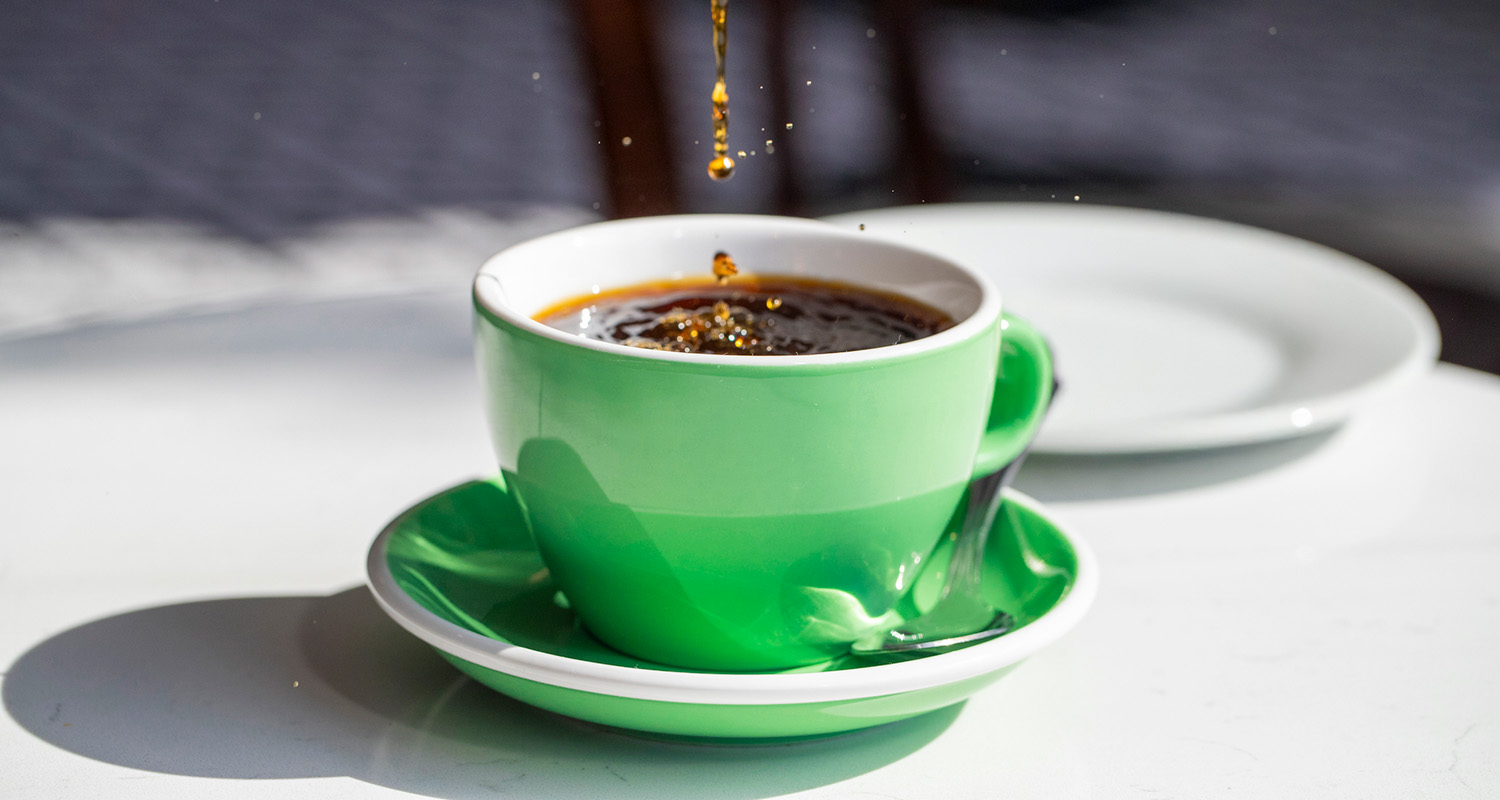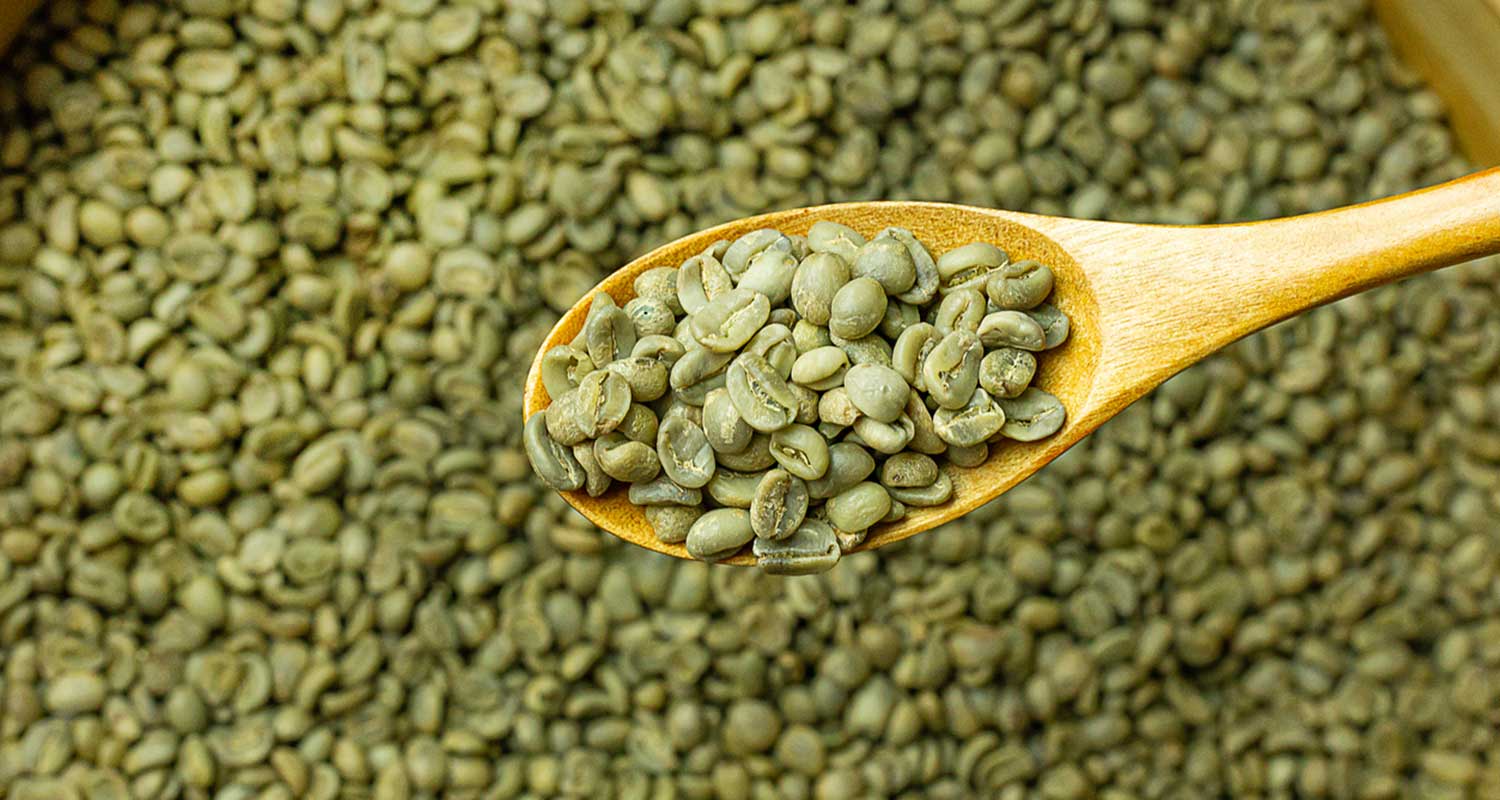Is Decaf Coffee Bad for You? The Swiss Water Process

- Decaf coffee is a good option for reducing caffeine intake, but the decaffeination method affects its quality and health benefits.
- The Swiss Water Process is a chemical-free method that removes caffeine while preserving coffee’s natural flavor and beneficial compounds.
- Solvent-based decaffeination methods use chemicals like methylene chloride or ethyl acetate, which may leave behind trace residues and alter the coffee’s taste
Decaf coffee offers the delicious taste of coffee without the caffeine, making it a great option if you’re sensitive to stimulants or looking to cut back. However, not all decaffeination methods are created equal. Some use chemical solvents, which raises some red flags.
The Swiss Water Process provides a cleaner alternative, using only water, time and temperature to remove caffeine while preserving coffee’s natural flavors and beneficial compounds. Unlike chemical solvent methods, Swiss Water decaf retains more antioxidants and polyphenols,[1] which help fight oxidative stress, support heart health and promote brain function.[2] It also avoids residual chemical exposure, making it a better choice for long-term wellness.
This article explores whether decaf coffee is bad for you, decaf coffee benefits, how different decaffeination methods compare and why the Swiss Water Process is the best choice for a healthier cup.

What is Decaf Coffee?
Decaf coffee is regular coffee with most of its caffeine removed. The decaffeination process typically eliminates at least 97% of the caffeine, allowing you to enjoy a cup of joe without the stimulating effects.[3]
The great news is that decaf coffee retains antioxidants and beneficial compounds with the Swiss Water Process. In your cup of decaf, you’ll still enjoy the benefits of polyphenols and chlorogenic acids, two powerful antioxidants in coffee, that help with health and combating oxidative stress.[4] These compounds may also support heart health.[5] Plus, coffee’s natural bioactive compounds have been shown to support brain function and brain health.[6] Talk about a great way to kick off your day.
Choosing a decaffeination method that preserves these beneficial compounds ensures you get the most from your coffee, both in taste and wellness. Next up, explore how decaf coffee is made.

How is Decaf Coffee Made?
There are several decaffeination methods, but they differ in how they extract caffeine and whether they use chemicals or natural processes.
The Swiss Water Process
The Swiss Water Process is a chemical-free decaffeination method that uses only water, temperature and time to remove caffeine while maintaining the coffee’s natural flavor and antioxidants.[7] Green coffee beans are soaked in water to extract caffeine and coffee solids. The caffeine is then removed using a carbon filter and the flavor-rich water is reintroduced to the beans, ensuring the coffee retains its taste without chemical residues.
This method produces a cleaner, more natural decaf coffee without altering its original profile. It’s also certified organic and commonly used for high-quality decaf coffee. Rest assured that Bulletproof decaf coffee is made using the Swiss Water Process for a clean coffee option that is free from solvents.
What about other decaffeination methods you may be exposed to? Let’s dive in.
Solvent-Based Methods (Methylene Chloride and Ethyl Acetate)
Solvent-based methods use chemical agents to remove caffeine from coffee beans. These methods rely on compounds that selectively bind to caffeine, allowing it to be extracted while leaving other coffee components behind. Two of the most common solvents used in commercial decaffeination are methylene chloride and ethyl acetate, both of which effectively remove caffeine but come with potential drawbacks. These solvents are not only used in coffee processing but are also found in industrial products like paint strippers, nail polish removers and degreasers.[8] Not exactly breakfast-worthy.
Methylene chloride decaffeination involves steaming green coffee beans to open their pores before rinsing them with methylene chloride, a chemical that dissolves caffeine. The beans are then dried to remove residual solvent. The FDA approves this method[9] and considers it safe. But concerns remain about even trace amounts of chemical residue.10 Despite this, it remains widely used in the coffee industry because it preserves coffee’s natural flavor.
Ethyl acetate decaffeination is sometimes marketed as a “natural” process because ethyl acetate is found in certain fruits.11 However, the ethyl acetate used in coffee decaffeination is typically synthetically produced rather than naturally derived. The process involves soaking the beans in a solution containing ethyl acetate, which bonds to caffeine and removes it from the beans. While this method is effective, it can sometimes leave a residual fruity or altered taste, affecting the coffee’s overall profile.
Both of these solvent-based methods remove caffeine efficiently but may not be the cleanest or healthiest choice for your cup of coffee. Is there anything else you should be aware of when it comes to decaf coffee? Let’s talk about decaf coffee’s effect on your liver and kidneys next.

What Are the Negatives of Decaf Coffee?
The impact of decaf coffee depends on how it’s made and how your body responds to it.
Is Decaf Coffee Bad for Your Liver or Kidneys?
Research suggests that coffee—both regular and decaf—may actually support liver and kidney health rather than harm it.[10] Antioxidants in coffee help reduce oxidative stress and inflammation, which can benefit liver function.[11] If you have specific liver or kidney conditions, it’s always best to consult your healthcare provider before making dietary changes.
Is it Ok to Drink Decaf Coffee Every Day?
Drinking decaf coffee daily is generally safe and can still provide many of the antioxidants and beneficial compounds found in regular coffee.[12] Since decaf has only a small amount of caffeine, it’s ideal if you want to cut back on caffeine but still enjoy your coffee ritual. However, while decaf eliminates most caffeine, small amounts still remain. A typical cup of decaf contains 2 to 15 milligrams of caffeine, which is a lot lower than regular coffee but may still be a factor if you are extremely sensitive to caffeine.[13]
The main drawbacks or side effects of decaf coffee depend largely on how it is processed. Just stay away from those made with solvent-based methods, like methylene chloride or ethyl acetate, to avoid possible trace amounts of chemical residues. And lastly, decaf coffee may still give you digestive discomfort from coffee acids, especially if you drink it on an empty stomach.[14] Listen to your body and adjust your intake based on how it makes you feel.
Is Decaf Coffee Worse for You Than Caffeinated Coffee?
Decaf and regular coffee both contain antioxidants and polyphenols that support your health. However, decaf coffee doesn’t have some of benefits of caffeine, like improved alertness.[15] On the other hand, decaf may be a better choice if you experience jitters, disrupted sleep or caffeine-related digestive issues.
Again, the bottom line is that when choosing decaf, how it’s processed matters. Choose clean coffee that’s been processed using methods like the Swiss Water Process to enjoy a better cup of coffee.
H2: Health Benefits of Swiss Water Decaf Coffee
Swiss Water decaf is a great choice if you want to enjoy coffee without the caffeine or chemicals (and who wants chemicals for breakfast?). This method removes caffeine using only water, time and temperature, keeping the process clean and natural while preserving the coffee’s rich flavor and health benefits.
Swiss Water decaf retains more of coffee’s polyphenols and antioxidants, which help support heart health, brain function and overall well-being.[16] If you’re cutting back on caffeine but still want a smooth, flavorful cup that’s free from unwanted additives, this is one of the best options out there.
Now that you’ve found the cleanest decaf, it’s time to take your coffee-making skills to the next level. Check out the Ultimate Guide to Coffee Brewing to perfect your cup, whether you prefer espresso, French press or pour-over.
Sign up for early access to sales, product launches, the latest Bulletproof news and more!



